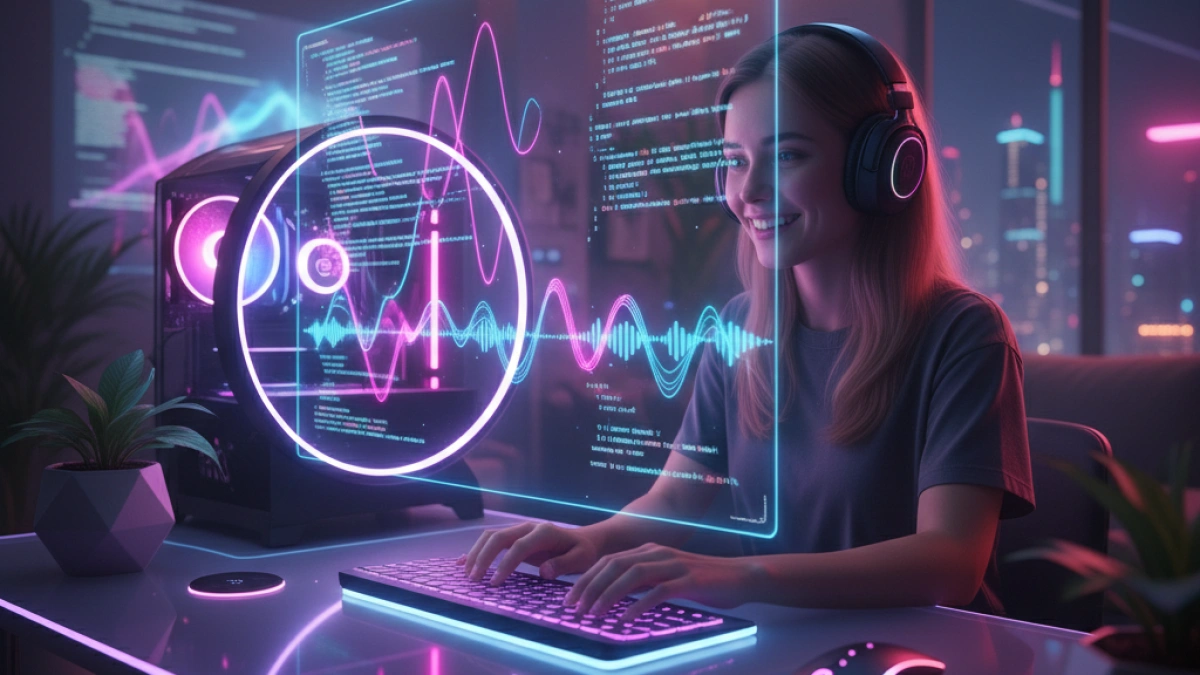The impact of vibe coding on productivity and the role of the programmer


The concept of 'vibe coding' is emerging as a revolutionary tool in the field of programming, promising to significantly increase productivity. However, this innovative practice has led many experienced developers to feel more like "code babysitters" than software creators. As artificial intelligence redefines the development landscape, it is crucial to explore the implications of this new trend and how it is transforming the role of programmers.
What is vibe coding?
Vibe coding is an emerging practice in which developers allow artificial intelligence to generate code from natural language descriptions of what they want to create. This methodology promises unprecedented development speed, making the process of simply outlining ideas much more agile. However, for many senior programmers, the experience has become frustrating, leading to a new role that involves overseeing the AI's work.
The duality of technological advancement
A report by Fastly revealed that 95% of surveyed programmers spend extra time correcting code generated by artificial intelligence. Despite this, most agree that the advantages of vibe coding outweigh the drawbacks.
Carla Rover, a web developer with 15 years of experience, describes vibe coding as a "beautiful and infinite napkin on which ideas can be perpetually sketched out." However, her experience has also been marked by moments of frustration. Rover, who had to restart a project from scratch, expressed, "I treated the work as if the AI were an employee; it's not."
Challenges of AI-generated code
The danger of code produced by artificial intelligence lies in its tendency to generate unpredictable errors. These can include "hallucinations" where the AI invents package names, as well as security issues and a troubling lack of "systemic thinking." Technology experts have pointed out that AI tends to address superficial problems and can create redundant and confusing solutions instead of offering coherent software architecture. Feridoon Malekzadeh, another experienced professional in the field, compares working with AI to "hiring your stubborn and rude teenage child to help you do something," estimating that he spends between 30% and 40% of his time correcting errors introduced by the AI.
Blame and responsibility
The situation has led to a phenomenon where some programmers tend to blame the artificial intelligence for mistakes that are their responsibility. The ability to generate code at high speed can lead to a dangerous attitude of delegating responsibilities, forgetting that human oversight is essential.
Undeniable advantages of vibe coding
Despite the frustrations and challenges, many programmers do not wish to return to previous practices. Vibe coding has proven to be particularly useful in tasks such as prototyping and generating repetitive code, significantly streamlining the workflow. Malekzadeh states, "I can accomplish more with AI programmers than without them."
AI as an assistant
The key to success in using vibe coding lies in understanding artificial intelligence not as a substitute but as an assistant that can enhance the creative and execution capabilities of programmers. Austin Spires from Fastly highlights that the code generated by AI often prioritizes the quickest solution over the correct one, which can result in vulnerabilities. For this reason, companies like NinjaOne, under the direction of CTO Mike Arrowsmith, are promoting a "safe vibe coding" approach. This model includes access controls to AI tools and mandatory code reviews by human peers.
A tax on innovation
The extra time dedicated to supervising and correcting AI code has been described as a "tax on innovation," a necessary cost to capitalize on the benefits that this technology offers. For new generations of engineers, this process has become the norm. Elvis Kimara, an emerging engineer, expresses that the approach has evolved: "We will not just write code; we will guide AI systems, take responsibility when things break, and act more like consultants for the machines."
The transformation of the programmer's role
Now more than ever, the role of the developer is undergoing a radical transformation. It is no longer just about writing code; programmers must learn to define problems, guide artificial intelligence, verify results, and ultimately ensure the quality and security of the final product. As Malekzadeh concludes by quoting French theorist Paul Virilio: "Every technology carries with it its own negativity, which is invented at the same time as technical progress." With the advent of vibe coding, new complications have also arisen. The true skill will be learning to navigate these turbulent waters.
The impact of vibe coding is undeniable, and its adoption presents both significant opportunities and challenges for the future of software development. With each advance comes the need to adapt and redefine the role of the programmer in this new, technology-accelerated era. For more information on topics like this, feel free to keep reading my blog.















